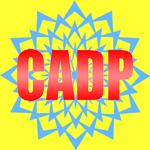In computer science, specifically software engineering and hardware engineering, formal methods are a particular kind of mathematically rigorous techniques for the specification, development and verification of software and hardware systems. The use of formal methods for software and hardware design is motivated by the expectation that, as in other engineering disciplines, performing appropriate mathematical analysis can contribute to the reliability and robustness of a design.

Theoretical computer science (TCS) is a subset of general computer science and mathematics that focuses on mathematical aspects of computer science such as the theory of computation, lambda calculus, and type theory.
In systems engineering, dependability is a measure of a system's availability, reliability, maintainability, and in some cases, other characteristics such as durability, safety and security. In real-time computing, dependability is the ability to provide services that can be trusted within a time-period. The service guarantees must hold even when the system is subject to attacks or natural failures.
The World Wide Web has become a major delivery platform for a variety of complex and sophisticated enterprise applications in several domains. In addition to their inherent multifaceted functionality, these Web applications exhibit complex behaviour and place some unique demands on their usability, performance, security, and ability to grow and evolve. However, a vast majority of these applications continue to be developed in an ad hoc way, contributing to problems of usability, maintainability, quality and reliability. While Web development can benefit from established practices from other related disciplines, it has certain distinguishing characteristics that demand special considerations. In recent years, there have been developments towards addressing these considerations.

Model-based testing is an application of model-based design for designing and optionally also executing artifacts to perform software testing or system testing. Models can be used to represent the desired behavior of a system under test (SUT), or to represent testing strategies and a test environment. The picture on the right depicts the former approach.
The International Federation for Information Processing (IFIP) is a global organisation for researchers and professionals working in the field of computing to conduct research, develop standards and promote information sharing.
In computer science, an abstract state machine (ASM) is a state machine operating on states that are arbitrary data structures.
Mark Burgess is an independent researcher and writer, formerly professor at Oslo University College in Norway and creator of the CFEngine software and company, who is known for work in computer science in the field of policy-based configuration management.
The Illinois Security Lab is a research laboratory at the University of Illinois at Urbana–Champaign established in 2004 to support research and education in computer and network security. The lab is part of the Computer Science Department and Information Trust Institute. Its current research projects concern health information technology and critical infrastructure protection. Past projects addressed messaging, networking, and privacy.
EasyChair is a free web-based conference management software system used, among other tasks, to organise paper submission and review. EasyChair is widely used, since 2002, in the scientific community, with reportedly more than two and a half million users in 2019.
Amit Sheth is a computer scientist at University of South Carolina in Columbia, South Carolina. He is the founding Director of the Artificial Intelligence Institute, and a Professor of Computer Science and Engineering. From 2007 to June 2019, he was the Lexis Nexis Ohio Eminent Scholar, director of the Ohio Center of Excellence in Knowledge-enabled Computing, and a Professor of Computer Science at Wright State University. Sheth's work has been cited by over 48,800 publications. He has an h-index of 106, which puts him among the top 100 computer scientists with the highest h-index. Prior to founding the Kno.e.sis Center, he served as the director of the Large Scale Distributed Information Systems Lab at the University of Georgia in Athens, Georgia.

CADP is a toolbox for the design of communication protocols and distributed systems. CADP is developed by the CONVECS team at INRIA Rhone-Alpes and connected to various complementary tools. CADP is maintained, regularly improved, and used in many industrial projects.
In computing, algorithmic skeletons, or parallelism patterns, are a high-level parallel programming model for parallel and distributed computing.

Róbert Lovas is a Hungarian computer scientist at SZTAKI, Budapest, Hungary.
Model-driven security (MDS) means applying model-driven approaches to security.
The service-oriented computing environment (SORCER) is a distributed computing platform implemented in Java. It allows writing network-programs that operate on wrapped applications (services) to spread across the network. SORCER is often utilized in scenarios similar to those where grids are used in order to run parallel tasks.
Patrick Denis Lincoln is an American computer scientist leading the Computer Science Laboratory (CSL) at SRI International. Educated at MIT and then Stanford, he joined SRI in 1989 and became director of the CSL around 1998. He previously held positions with ETA Systems, Los Alamos National Laboratory, and MCC.

Jean-Pierre Jouannaud is a French computer scientist, known for his work in the area of term rewriting.